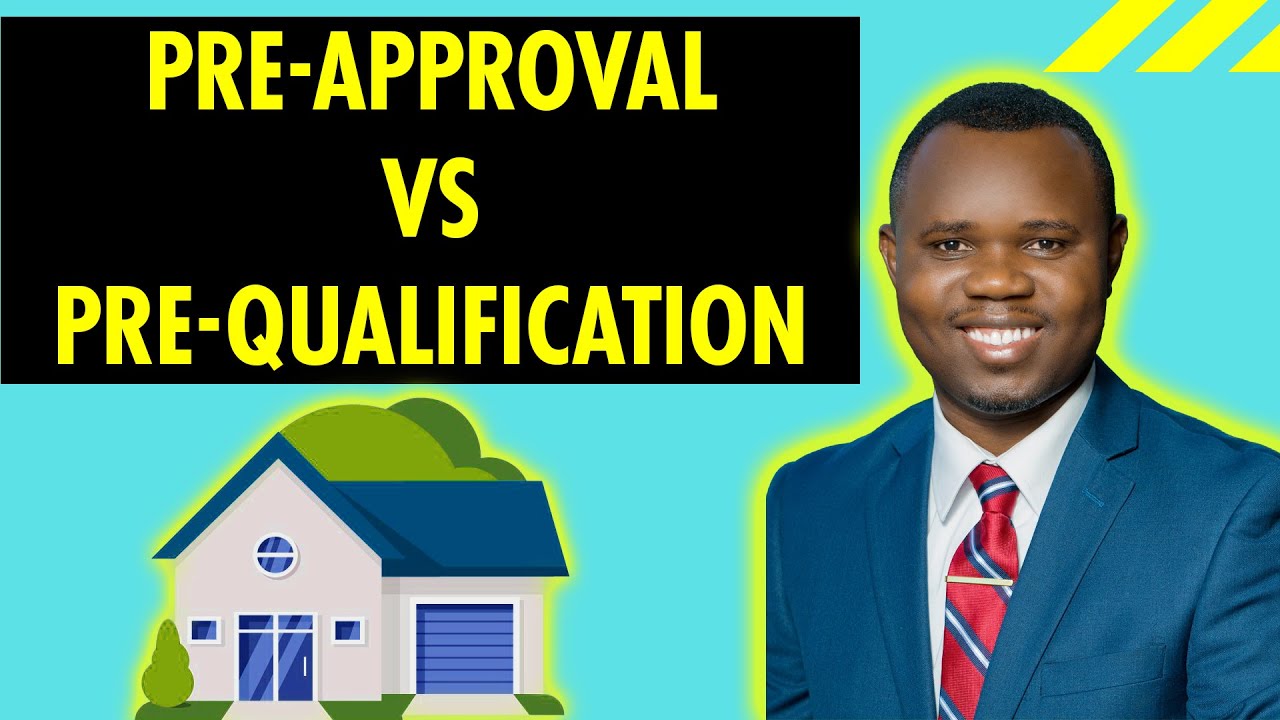Pre-Qualification vs. Pre-Approval Letter: Demystifying Mortgage Buzzwords

Embarking on the journey to homeownership can be exhilarating and overwhelming at the same time. As you delve into the world of mortgages, you'll likely come across terms like "pre-qualification" and "pre-approval letter." While they might sound similar, they serve distinct purposes in the mortgage process. In this blog, we'll dive into the differences between pre-qualification and pre-approval letters, helping you understand their significance and when each comes into play.
Pre-Qualification: The First Step
Pre-qualification is typically the initial step in the mortgage process. It's like dipping your toes into the water to get an idea of how cold it is before fully diving in. During pre-qualification, a lender assesses your financial situation based on the information you provide. This includes your income, debt, and assets. However, it's important to note that pre-qualification is not a guarantee of a loan amount or an interest rate; it's an estimate based on the information you provide.
The primary purpose of pre-qualification is to give you a rough idea of how much you might be able to borrow. It helps you set a realistic budget as you start looking at homes. Keep in mind that pre-qualification doesn't involve a deep dive into your credit history or verification of your financial details. As such, it's a helpful starting point, but it's not as solid as a pre-approval.
Pre-Approval Letter: A Stronger Commitment
Pre-approval takes the pre-qualification process a step further. It involves a more thorough assessment of your financial background. Lenders will pull your credit report, verify your income and employment, and scrutinize your debt-to-income ratio. This process is more comprehensive, and therefore, a pre-approval carries more weight than a pre-qualification.
Once you're pre-approved, you'll receive a pre-approval letter from the lender. This letter states that the lender is willing to lend you a specific amount of money based on the information provided and the thorough analysis conducted. It's a stronger indication of your purchasing power and can give you a competitive edge when you make an offer on a house. Sellers often view pre-approved buyers as serious and credible, which can make your offer more appealing in a competitive market.
Benefits and When to Use Each
Pre-Qualification Benefits:
Quick and easy process to get an initial estimate of your budget.
Helpful for getting a general idea of your affordability.
Useful for early-stage house hunting to narrow down options.
When to Use Pre-Qualification:
If you're just starting your homebuying journey and want to explore potential options without committing to a specific property, pre-qualification can be a valuable tool.
Pre-Approval Benefits:
Demonstrates serious intent to sellers, making your offer more attractive.
Provides a precise budget range to guide your house hunting.
Increases your negotiating power during the purchase process.
When to Use Pre-Approval:
When you've found a property you're genuinely interested in and are ready to make an offer, having a pre-approval letter can give you an advantage in a competitive market.
Pre-qualification and pre-approval letters are two important steps in the mortgage process, each serving a specific purpose. Pre-qualification gives you a preliminary idea of your affordability, while pre-approval carries more weight and can provide you with a solid budget range for serious house hunting. By understanding the differences between these terms, you'll be better equipped to navigate the homebuying journey with confidence, whether you're dipping your toes or diving headfirst into the exciting world of homeownership.


